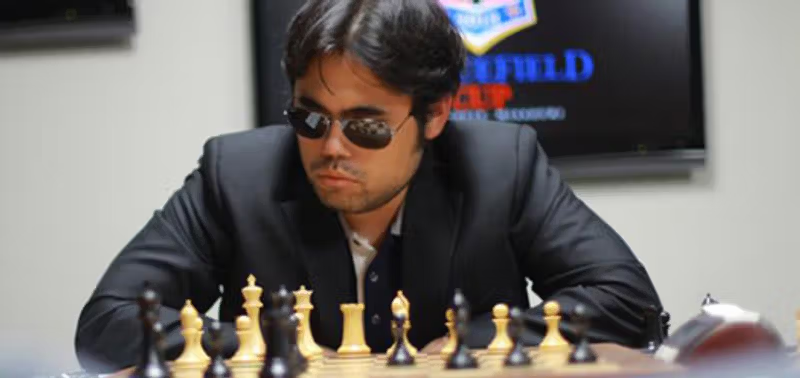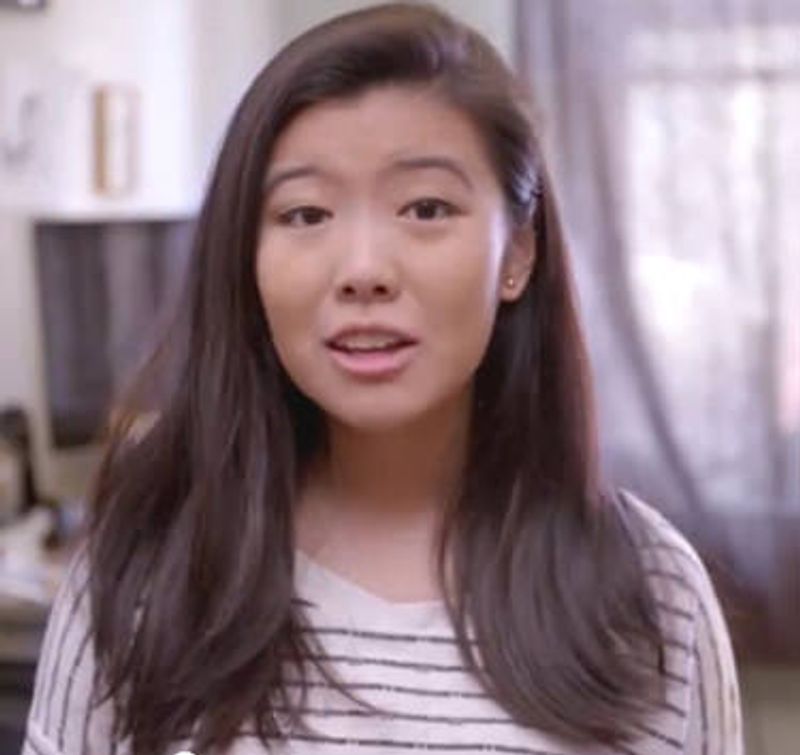Blog
Hikaru Nakamura, No. 1 US chess player, and Chloe Portia Chik, Asian face on the Hillary video–a new Asian American identity?
We’re coming up quickly to Asian American Pacific Islander Heritage Month in May, and once again, I’m wondering where we are with our umbrella term that expands and becomes inclusive. Or has the term become meaningless?
We know it’s a political term, but shouldn’t we be feeling a little unity in the community about our umbrella phrase? Or is that old hat?
Just this week, I talked to two fairly notable Asian Americans in their twenties, notable in that they did just make the news.
I asked them a simple question: “Do you identify as Asian American?”
Their answers surprised me.

Hikaru Nakamura should be more famous than he is.
He could be America’s Bobby Fischer, if America cared who the top-ranked and reigning U.S. Chess Champion was.
Last Monday, Nakamura, 27, was crowned the winner of U.S. Chess Championships, a 12-player round-robin tournament of chess grandmasters, where he won $45,000.
Just to provide some perspective, on the same weekend, 21-year old Jordan Spieth won golf’s Masters tournament and took home $1.8 million.
That should give you a sense of the relative anonymity we’re talking about.
Nakamura was more relieved when he won, expecting a draw, the usual outcome between great players. But in chess, it seems most games are “PTB” or “play to blunder,” and Nakamura took advantage of the mistakes of defending tournament champion Gata Kamsky. It was just the edge needed to win the game and the whole tournament.
Nakamura ended up atop the leaderboard by outpointing fellow grandmasters Ray Robson, 20, and Wesley So, 22, the first time Asian Americans finished 1-2-3 at the U.S. Chess Championships.
Nakamura is a pretty soft-spoken guy, born in Japan to a Japanese father and an American mother, but raised in Manhattan.
When I talked to him during the tournament, I asked him about his Asian roots.
“I’m in a strange situation because my birth parents–my father was Japanese and my mother was American–they got divorced when I was 2. I grew up in America primarily with my mom, and she married an Indian,” Nakamura told me.
And then he delivered the knockout blow.
“I don’t necessarily myself feel that Asian; I consider myself more American than Asian American,” Nakamura said.
But shouldn’t the fact that the top three players at the tournament are Asian Americans mean something, a point of pride within the Asian American community?
“I personally don’t feel that. But to each their own,” Nakamura responded. “Myself, I feel much more American. I grew up without the Asian influence…I grew up in America, I spent my whole life in America, I consider myself more American than anything. Asian roots, I think, have very little to do with where I am today.”
It was a polite conversation. But Nakamura’s attitude did strike me as one I’m seeing more and more, from especially the young.
They have a different sense of identity.

I came across this identity issue again when I talked to the face of the community. Well, that’s essentially what she is if you’ve seen the Hillary Clinton campaign video mass emailed across the land announcing the Clinton presidential run.
Only 4 million or so people have seen it just on YouTube.
Who is that Asian girl on the video looking for a job?
That’s Chloe Portia Chik, 20, from the San Francisco Bay Area and now a junior at NYU.
She wasn’t exactly plucked out of central casting. The campaign didn’t want an Asian American necessarily.
Chik told me she was contacted by a production company in New York. She didn’t know they worked for the campaign. But she said they wanted a college-age person who was a Democrat and a Hillary supporter.
“And I fit the bill,” said Chik in a phone conversation with me recently.
In an unscripted, three-hour session, Chik said she was interviewed for the video. But she didn’t know until Sunday morning whether she’d even be in it, let alone know when it would be released. Ten minutes after an email alert was sent to her, the video went wide.
“I was in shock,” she told me, though she was pleased with what she saw.
The video shows people in transition. And Chik was one of them. She was the one looking for a new job, sort of like Hillary.
And then there was Hillary talking about transitions.
The video wasn’t bad. But It’s so earnest in its textbook inclusion and diversity sensibility that one might doubt its sincerity.
A friend at Brown called Chik to say that she was Hillary’s token Asian.
Har-har.
Aside from a woman who looked South Asian, Chik was the only East Asian, Chinese American.
Considering Asian Americans were strong for Hillary eight years ago, and that most Asian Americans are Democrats, Chik was the face that those supporters were looking for as the messenger from Hillary.
Chik was our face.
So I had to ask: how did it feel to be the “It girl,” at least for now, the momentary face of Asian America?
And Chik was pretty honest.
Identity wise, she does what most people do. Identify ethnically. She said proudly,” I’m Chinese American.”
Both her parents are Hong Kong immigrants. They split up when she was young, and Chik’s mother remarried a Jewish man who would become Chik’s stepfather.
Now what about the term “Asian American”?
“I like to say that I am of Asian heritage, but I consider myself an American first and foremost,” Chik told me.
She said she recognizes that she speaks Chinese at home, celebrates traditions such as Chinese New Year and weddings, and even watches Chinese TV shows. “But I don’t think I would off the bat identify myself as Asian,” she said. “I identify myself as an American.”
Hey, the Census lets us all self-identify.
Still, I was interested in what is it that gets one to that place of an Asian American consciousness? Knowing the history? Feeling the pain of racism, past and present?
I’m not sure if we have a generational crisis or an identity crisis here.
The two millennials I spoke to showed the thinking out there.
Now the question is about a redefining of Asian American identity and the politics for a new generation.
While Chik still seems pretty engaged in policy questions. Nakamura seems to be an obsessed chess champion and otherwise aloof.
But they sure seemed united in how they see the term “Asian American.”
It didn’t resonate.
Their answers made me think about my own allegiance to the term “Asian American,” especially being an American-born Filipino with a Spanish last name, who in the past has been mistaken for Latino.
I’ve often thought that Asian American consciousness was a matter of how much you were aware of the pain of racism, pa st and present.
To fight back, it takes a whole set of fingers to make a fist.
But it’s a different time now, one in which internal issues of generation and identity may be as critical as how we are perceived by society at large.

Emil Guillermo is an independent journalist/commentator. Updates at www.amok.com. Follow Emil on Twitter, and like his Facebook page.
The views expressed in his blog do not necessarily represent AALDEF’s views or policies.
Read Emil's full bio →